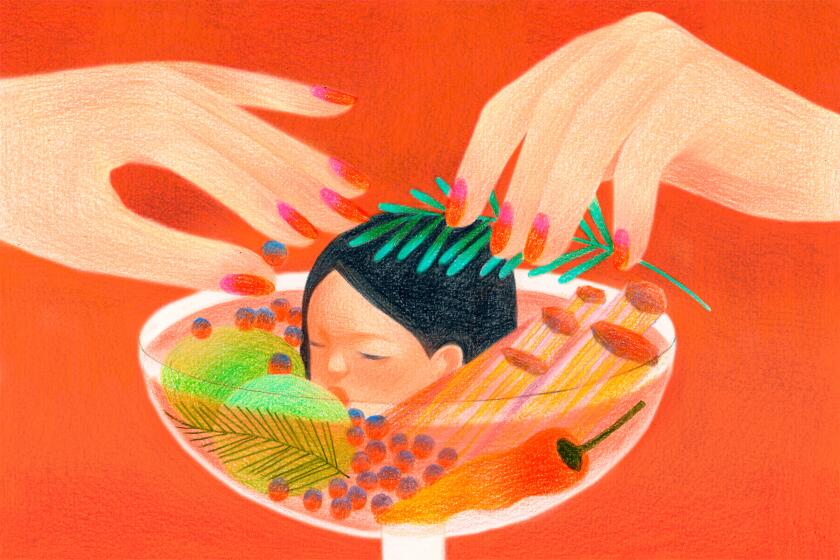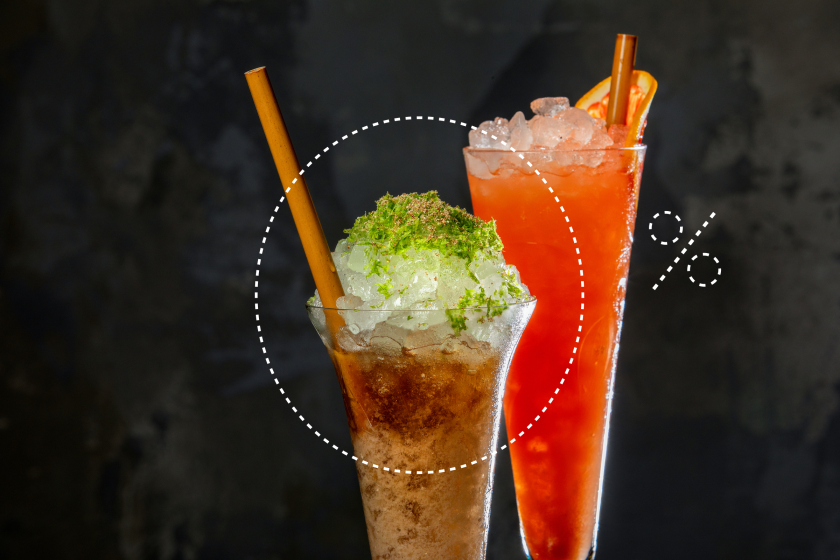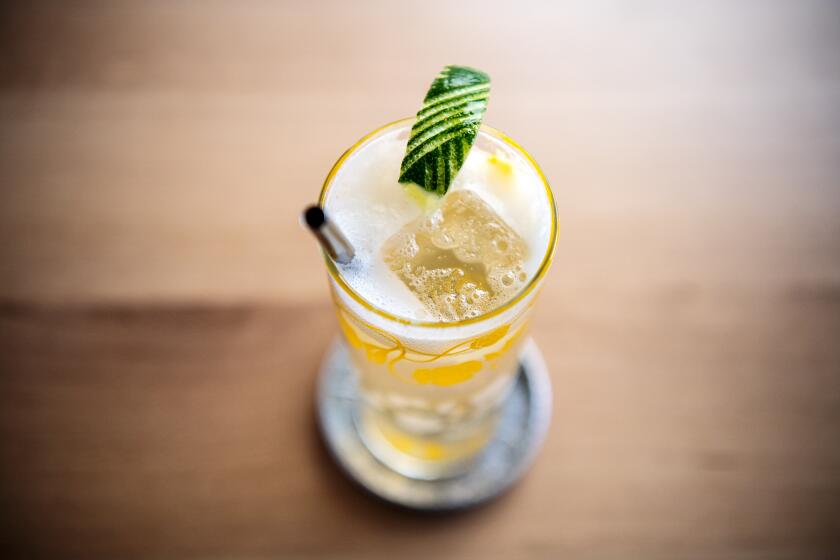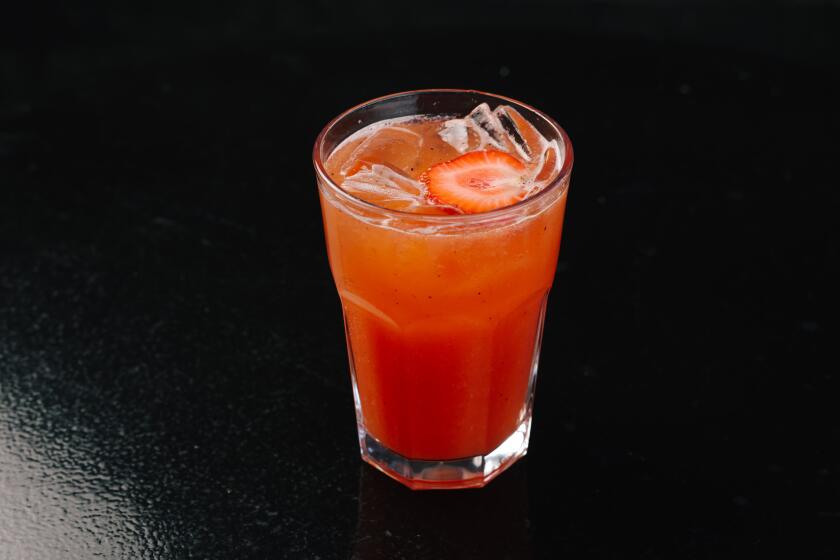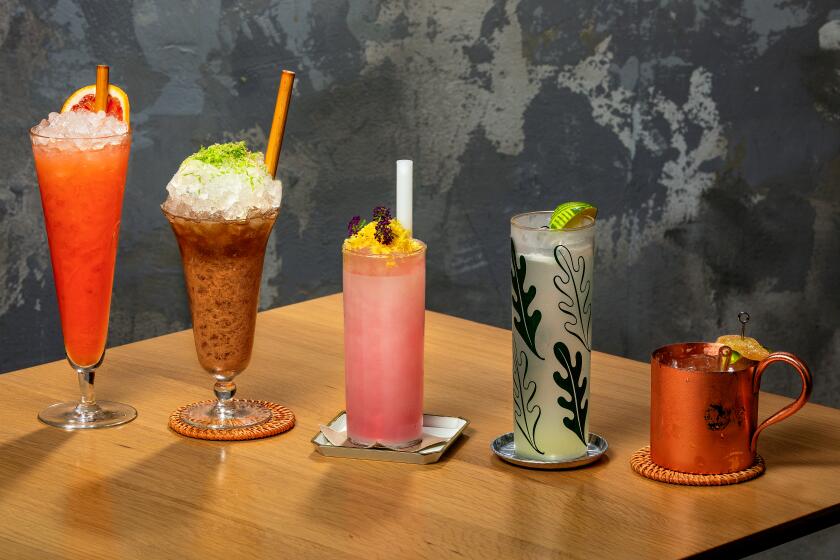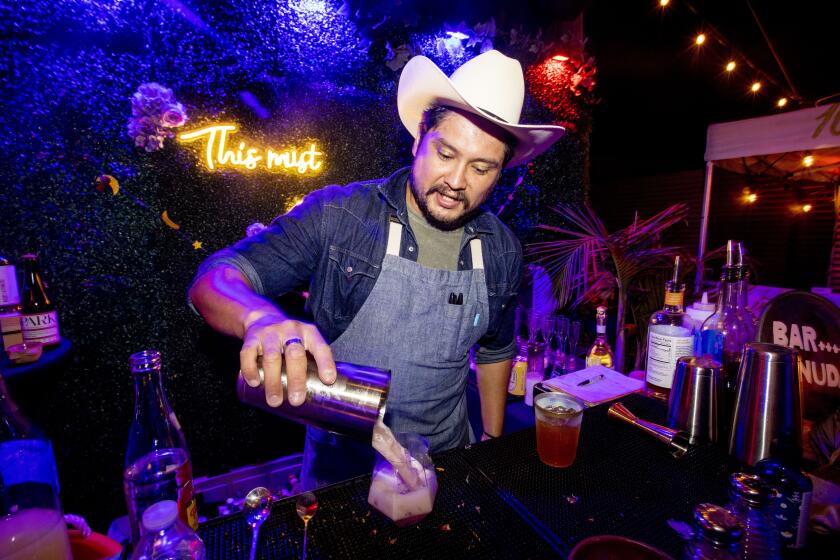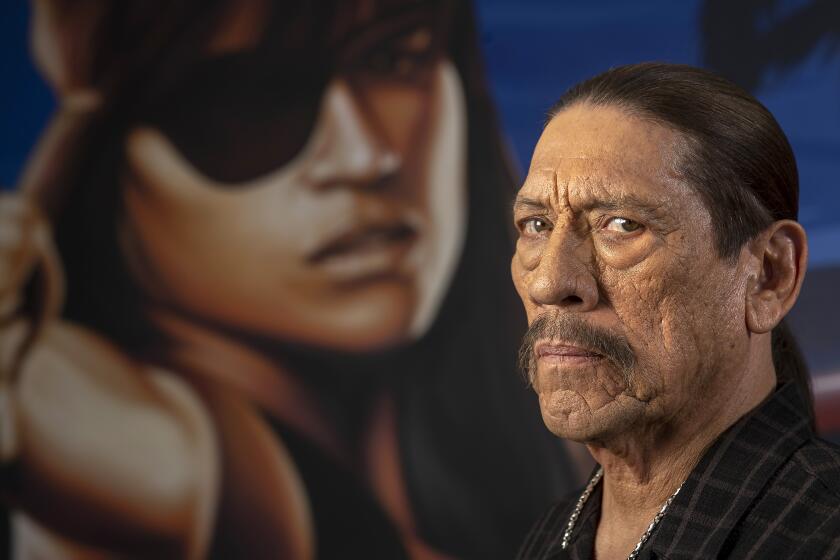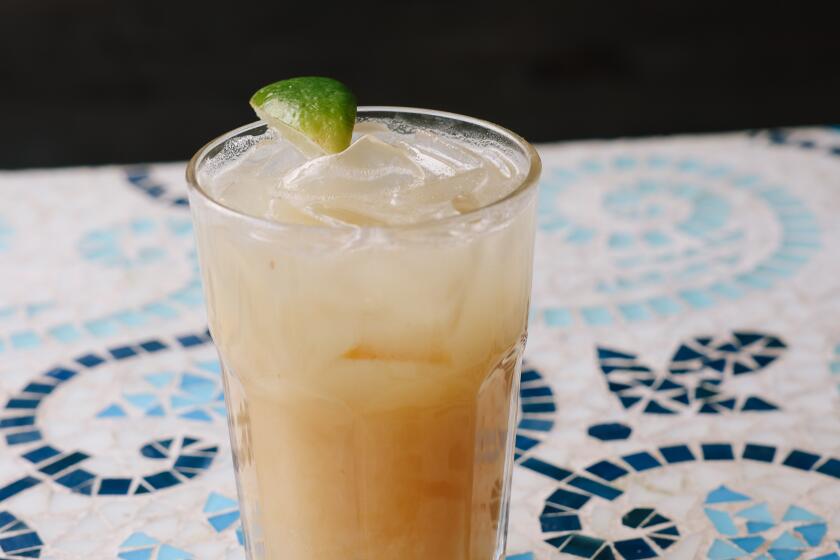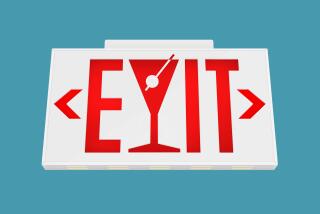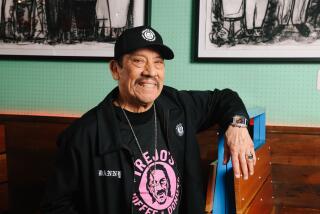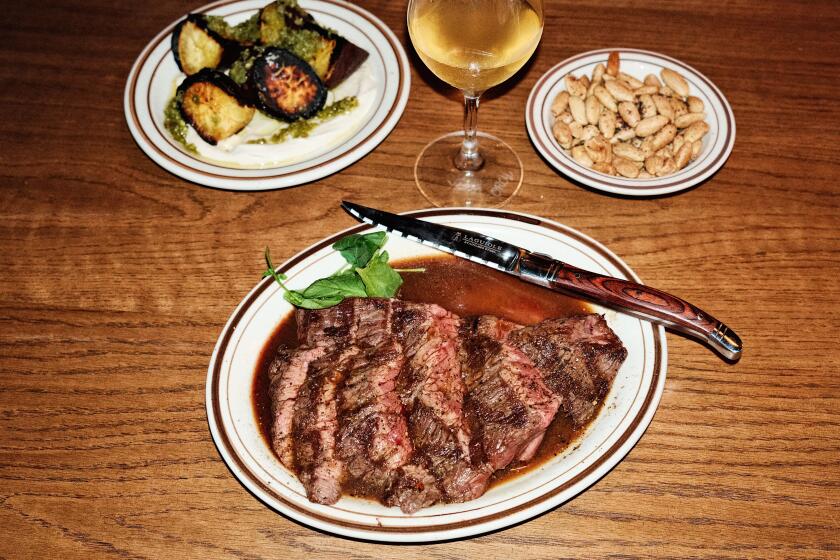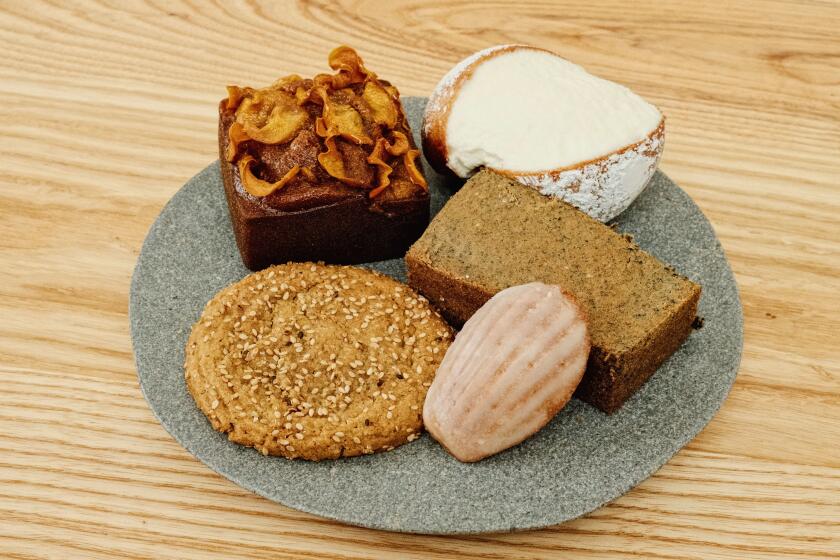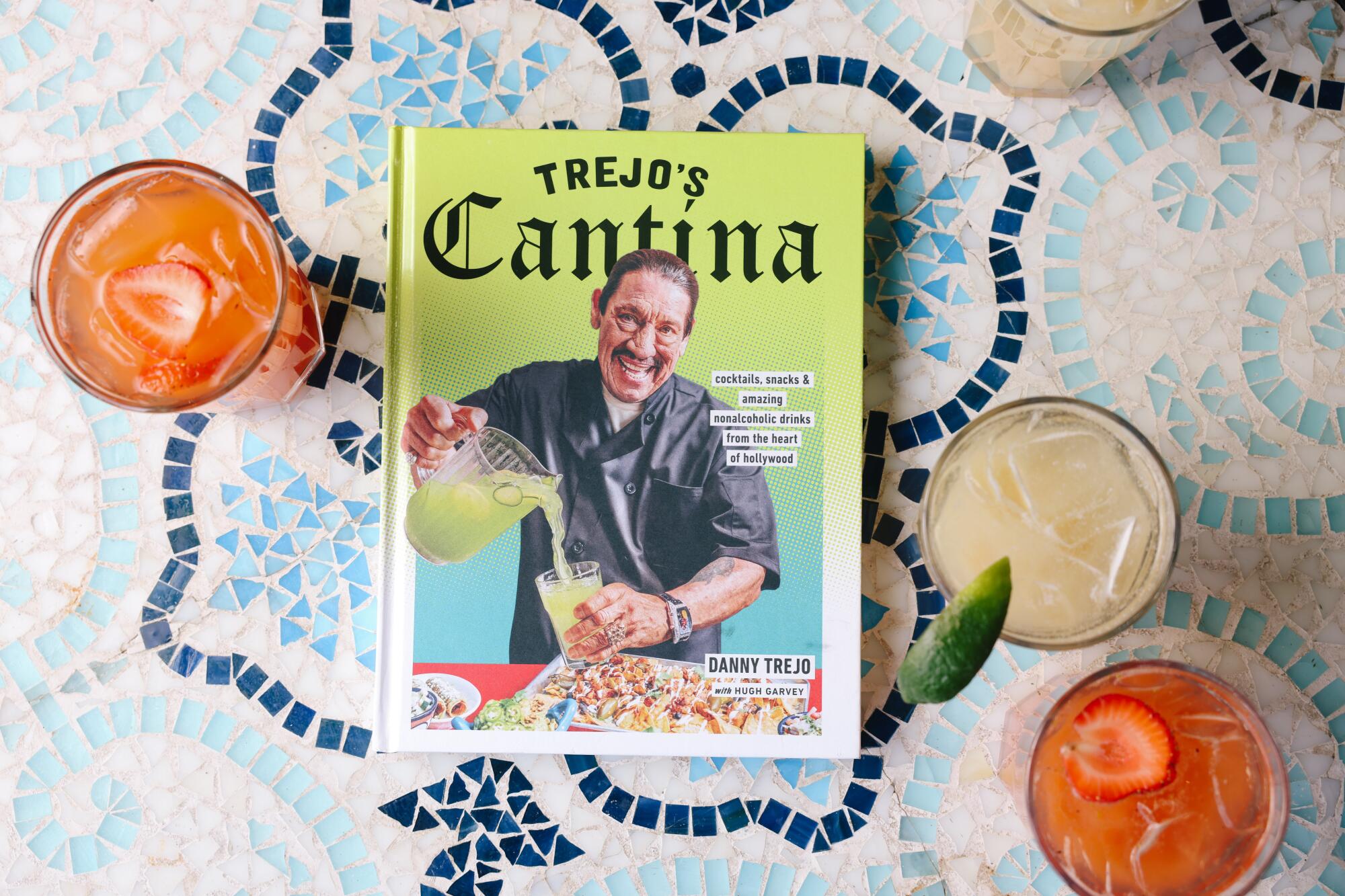
Use caution when attempting to make the aptly named Red Alert nonalcoholic cocktail from Danny Trejo’s latest cookbook. The first step, alongside boiling ancho chile syrup, requires fire-roasting the pepper over an open flame or directly under a broiler, from which mine caught fire.
I’m standing in my kitchen using an oven mitt to handle a sheet pan that holds a flaming charred bell pepper. As I blow out the glowing, now-blackened fruit, I feel a surge of adrenaline.
This particularly thrilling drink from the cookbook, “Trejo’s Cantina: Cocktails, Snacks & Amazing Non-Alcoholic Drinks From the Heart of Hollywood,” is his favorite, he tells me in an interview over Zoom. A chapter on nonalcoholic drinks includes aguas frescas and other booze-free cocktails made with fruit, spices, herbs and infused syrups and tea.
“The thing is they all taste good,” he says. “We made sure they all taste good.”
Plus, a tasting of several nonalcoholic spritzes and elixirs for the sober and sober curious.
At 79, the famed actor and notorious tough guy has reached 55 years of sobriety. And the book, published in the spring, marks a decades-long journey of recovery that now dovetails with an accelerating no-alcohol trend, Trejo’s growing restaurant empire, the launch of his zero-proof tequila and his personal mission to give back.
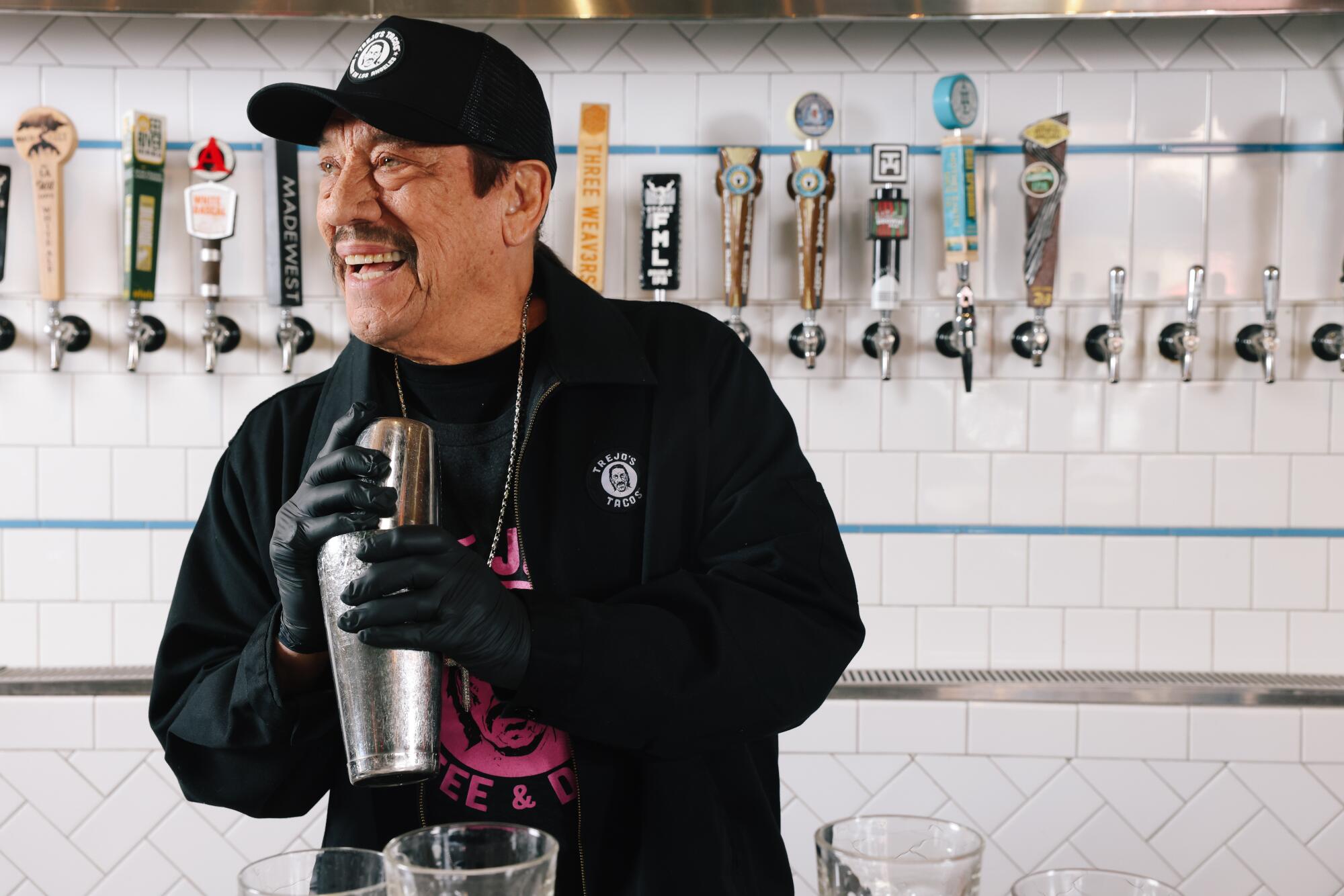
“This book is dedicated to the recovery community, of which I have been a member for over 50 years,” the introduction reads. “May you always find the hope, compassion and strength that can carry you to tomorrow. You got this!”
As demand for nonalcoholic options grow, Los Angeles restaurants and bars show there’s no limit to the creativity behind booze-free cocktails, crafting thoughtful recipes that take inspiration from our seasonal bounty.
“Trejo’s Cantina” is a follow-up to his first cookbook, “Trejo’s Tacos,” and an autobiography published in 2021 titled “Trejo: My Life of Crime, Redemption, and Hollywood.” Centering on his life growing up in L.A., the latest is an homage to Hollywood and the Eastside cantinas he frequented with his father and uncles as well as his journey through addiction and recovery. He describes cantinas as “festive gathering places where people come to enjoy life and celebrate one another’s company. I opened mine to be all inclusive to nondrinkers and drinkers alike.”
Since opening Trejo’s Donuts & Coffee in 2017, he has launched four restaurants in Los Angeles, including his Hollywood cantina, with others coming soon to downtown L.A. and London.
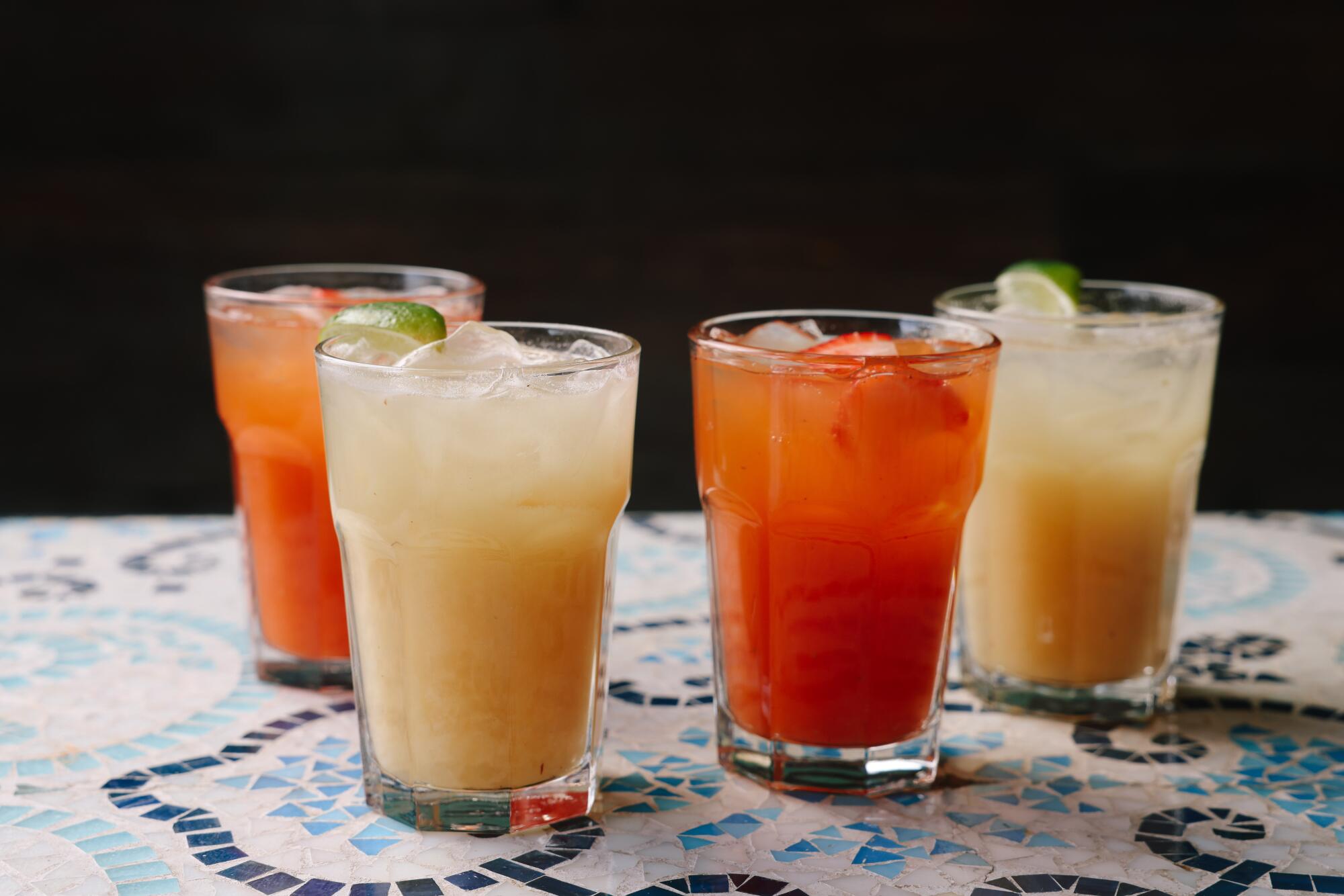
Nonalcoholic options have never been more popular, with Los Angeles leading the trend with alcohol-free lounges, nonalcoholic pairing menus and other creative options.
His cheerful cantina, on Cahuenga Boulevard in the middle of Hollywood, has bright blue and green walls, Danny Trejo decor and memorabilia for sale near the entrance. The long bar and comfy booths are inviting to all, whether they drink alcohol or not.
And though the “mocktail” trend has been going strong for years now, Trejo doesn’t like to refer to his drinks as such.
“While some folks like to call a drink without alcohol a mocktail, I don’t think that word does justice to the new delicious creations,” he writes. “They’re not ‘mock’ anything. They’re totally original, authentically delicious, and true to themselves. And they’ll never give you a hangover or a DUI!”
Red Alert
I finish making the Red Alert by puréeing the peeled, roasted pepper in a blender with hulled fresh strawberries, freshly squeezed lime juice, water and the ancho chile syrup. I pour the vibrant, slightly frothy red blended beverage over ice and garnish it with a sliced strawberry. It hits all the sweet, spicy, tart notes of a cocktail, sans alcohol.
At a time when bartenders are inventing booze-free menus and nonalcoholic wines, beers and “spirits” are gaining popularity, Trejo is capitalizing on a trend. But his connection to the booze-free movement goes back decades, which he says was the impetus for creating his own brand of zero-proof tequila, featured on the nonalcoholic cocktail menu at his cantina.
Kato’s dynamic drinks duo leads the way for next-level nonalcoholic cocktails and beverage pairings in Los Angeles.
“It’s a plague on the Latino community,” says Trejo during our interview of the effects of tequila. “I said, let’s do one, let’s do a good one, and it actually tastes pretty good.”
Those familiar with Trejo’s story know that the actor, who has played gritty roles in blockbuster movies such as “Desperado,” “Heat,” “Machete” and the “Badass” franchise, wasn’t always destined for stardom.
Trejo spent his early childhood in Echo Park and formative years and his difficult high school days in the San Fernando Valley facing parole, probation and eventually prison. In 1968, Trejo had reached his lowest point while incarcerated at Soledad State Prison when a riot broke out on Cinco de Mayo.
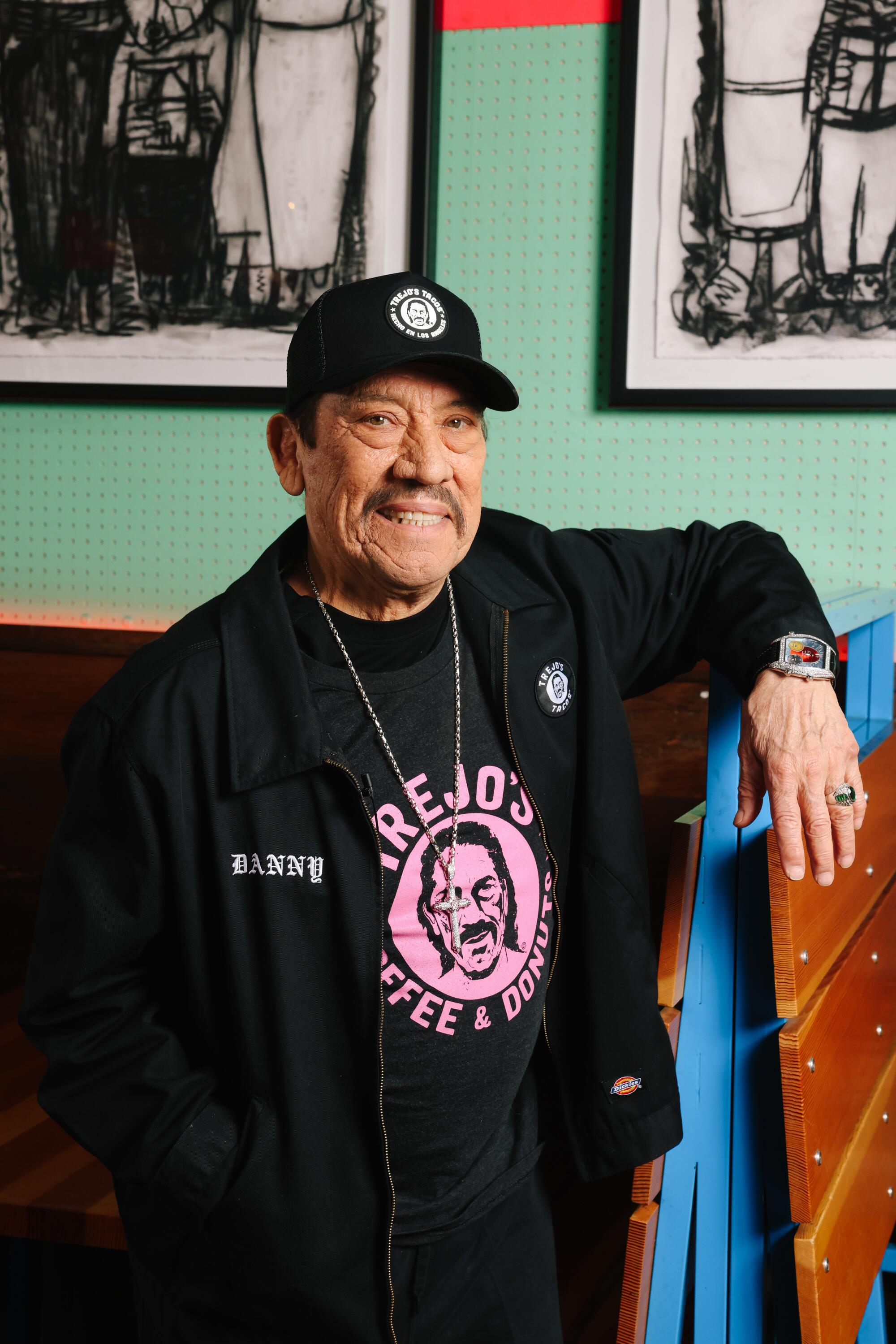
Alcohol-free spaces are a way to foster inclusion and well-being, while dismantling the standards of alcohol consumption that were rooted in colonialism.
“It’s funny, everybody thinks Cinco de Mayo means the fifth of May, but it doesn’t,” he says. “It means you better get bail money because you’re going to jail. On Cinco de Mayo you shoot a gun. You beat up a neighbor. Your wife stabs you. Something bad happens on Cinco de Mayo.”
For Trejo, this meant ending up in solitary confinement for months. But in the summer of 1969, he was released from prison for the last time. “I haven’t looked back,” he says.
“For some people, they say, ‘You know, I drank but it wasn’t that bad.’ Well, for me, it was that bad. So I can always look back at getting stabbed. I can look back at getting shot at. I can look back and I’m running from the police. I can look back at sitting in the hole. I got a past that tells me, ‘Yeah, it was bad, buddy!’
“I got that to look at, but even that won’t stop you. You have a mind that will tell you, ‘Come on, come on. You had a lot of fun!’ and it will actually try to fool you. It’s like an allergy of the body coupled with an obsession of the mind.”
He says that on the road to recovery he faced social pressures to drink. “It happened to me when I first stopped drinking when I came out of the penitentiary. I wouldn’t drink and people would go, ‘What do you mean, you don’t drink? No, no, come on, here,’ and they tried to buy me a drink and sometimes it was actually uncomfortable,” he says.
‘Acting wasn’t new to me. I’d acted to survive my childhood,’ writes Danny Trejo in his new memoir. He talks with The Times about his incredible life.
These experiences have informed Trejo’s cocktail menus at his restaurants as well as the recipes in the book. “So we started with these ‘mock’ cocktails, and I love them because nobody knows I’m not drinking.”
In the chapter titled “The Secrets of the Booze-Free Bar,” Trejo outlines how to infuse teas and syrups to augment nonalcoholic drinks like the Manzana Verde, made with green apples, fresh lime juice, a homemade cinnamon honey syrup and club soda, or the Trejopache, made with brown sugar, whole cloves, cinnamon sticks, dried chamomile, lime juice and sugar.
“What a difference it is for nondrinkers today,” says Trejo. “We are living in the golden era of nonalcoholic drinks and it is hands down the best time in history to be sober.”
Coconut-Pina-Guava Fresca
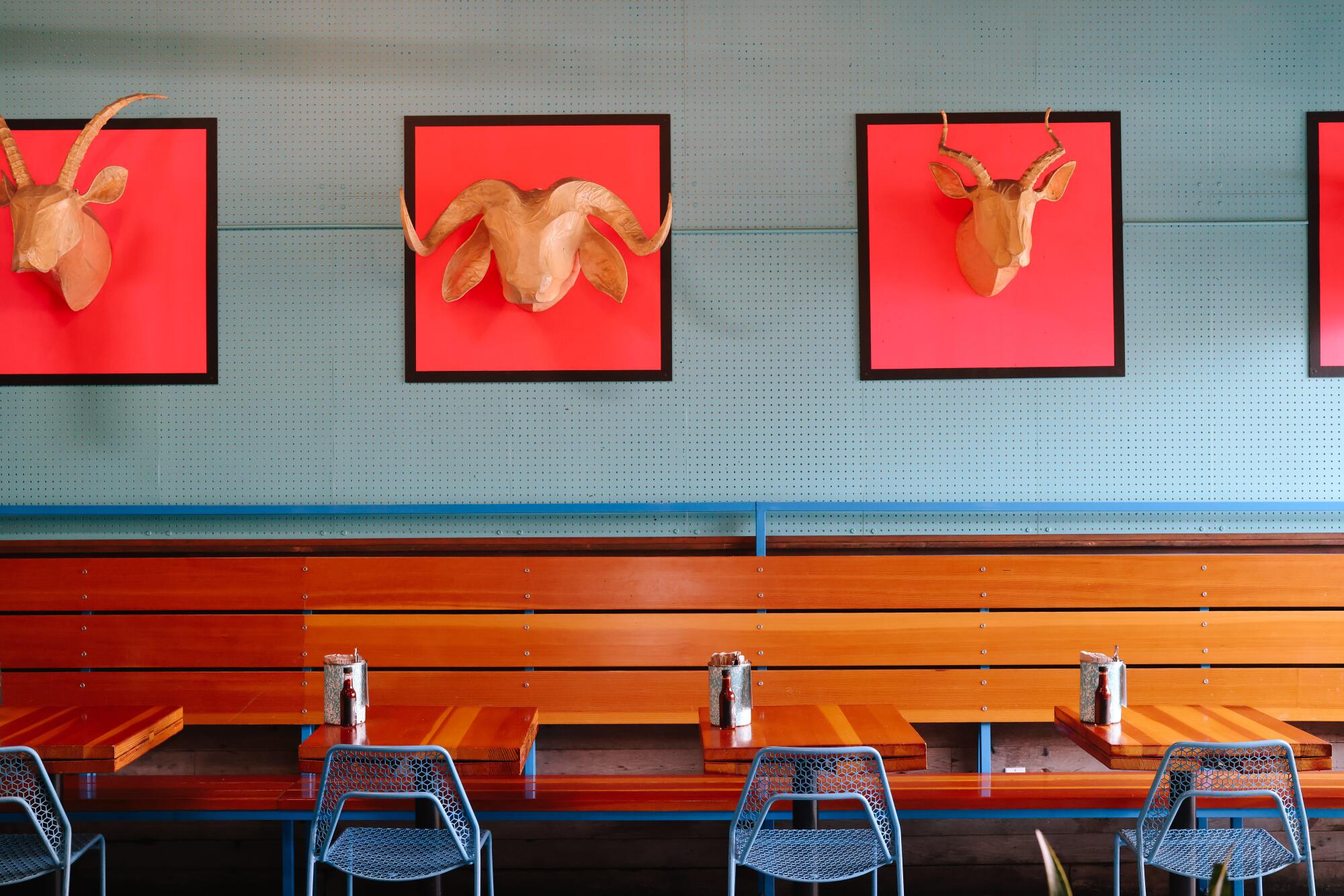
More to Read
Eat your way across L.A.
Get our weekly Tasting Notes newsletter for reviews, news and more.
You may occasionally receive promotional content from the Los Angeles Times.
